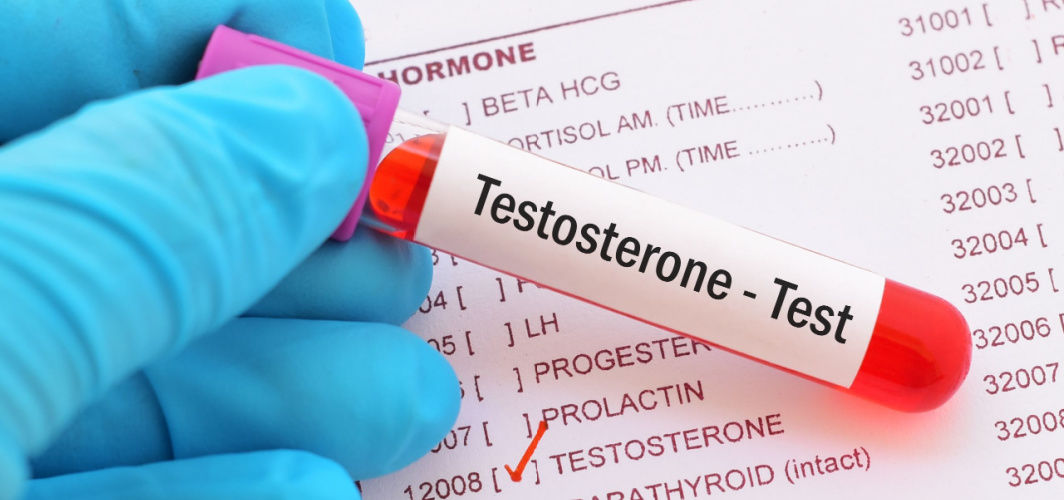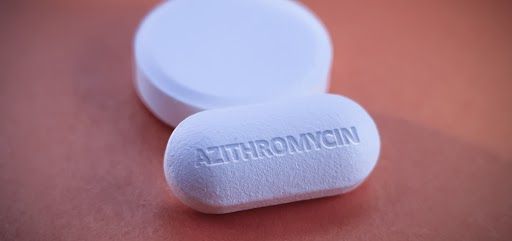General Health
How To Check Testosterone Levels?
6 min read
By Apollo 24|7, Published on - 17 August 2023
Share this article
0
0 like

An important role is played by the testosterone hormone in different aspects of a man’s health, including muscle growth, bone density, sexual drive or libido and overall well-being. Monitoring testosterone levels is crucial for identifying any imbalances or deficiencies. In this blog, the process of checking the level of testosterone and the significance of the hormone will be explored along with the testing methods available, and when it is appropriate to undergo a testosterone test.
What is Testosterone?
Testosterone is a hormone produced primarily in the testicles of males and on a smaller scale in females' ovaries that plays a key role in various physiological processes. It belongs to the class of androgens. The functions of testosterone include:
- It primarily takes care of the development of a man’s sexual health and characteristics like facial hair, development of reproductive organs, and changing of voice.
- Testosterone plays an important role in determining muscle health, strength and bone density in a male’s body.
- Testosterone stimulates protein synthesis, contributing to the growth and repair of muscle tissue.
- Additionally, it also aids the production of RBCs which are important for oxygen transport in the body.
- Testosterone also influences the mood and emotional well-being of a man. It affects neurotransmitter systems in the brain, influencing cognition, memory, and overall mood regulation.
- Balanced levels of testosterone are associated with improved mental health, enhanced cognitive function and overall well-being.
- Testosterone also plays a positive part in perfecting metabolism and helps to maintain a healthy cholesterol position.
What are Testosterone Levels Essential?
Testosterone levels are an essential aspect of assessing hormonal health. The levels of testosterone present in the body suggests the amount of circulation in the bloodstream. Factors like age, lifestyle changes such as improper diet, less physical activity and sleep patterns can also impact the levels of testosterone in the human body.
Testosterone levels are essential because:
- Hormonal Balance: Testosterone is a key hormone that contributes to maintaining hormonal balance in the body, influencing various bodily functions and processes.
- Reproductive Health: Adequate testosterone levels are vital for proper reproductive health in both men and women, affecting fertility and sexual function.
- Muscle and Bone Health: Testosterone plays a crucial role in the development and maintenance of muscle mass and bone density, contributing to overall physical strength and bone health.
- Metabolism Regulation: Testosterone helps regulate metabolism, impacting fat distribution and contributing to weight management.
- Cardiovascular Health: Optimal testosterone levels are linked to cardiovascular health, including the regulation of blood pressure and cholesterol levels.
Understanding Testosterone Testing
Several methods are available to check testosterone levels accurately. The most common methods include:
- Blood tests
- Saliva tests
- Urine tests
Blood tests are the most reliable and are a widely used method for measuring testosterone levels. They assess both total testosterone (TT) and free testosterone (FT) in the bloodstream.
To perform a testosterone blood test, a healthcare professional takes a small amount of blood, from a vein of your arm. The collected blood sample will be then sent to a laboratory for analysis or examination. It's important to note that testosterone levels may vary based on the day’s timings, so it’s recommended to take the test in the morning when levels are typically highest and it is medically proven.
When to Take a Testosterone Test?
Getting tested may be advisable if you witness low testosterone symptoms or suspect hormonal imbalances. Testosterone testing is recommended if you're facing fertility issues, have a history of testicular or pituitary diseases, or are following a hormone relief remedy. A healthcare professional who can evaluate the symptoms and determine if a testosterone blood test is necessary should be approached.
Signs and Symptoms of Low Testosterone
Low testosterone situations can impact a person's quality of life. Recognizing the signs and symptoms of low testosterone is important for early detection and appropriate intervention. Some common symptoms of low testosterone in the body may include:
- Decreased libido and sexual dysfunction: A low testosterone level can lead to a decline in sexual desires and performance in the male body.
- Fatigue and lack of energy: Reduced testosterone levels may result in persistent tiredness and a lack of energy.
- Loss of muscle mass and strength: The lower amount of testosterone can lead to loss of muscle mass and strength in a male.
- Increased body fat: Low testosterone situations can be associated with an increase in body fat, particularly around the tummy.
- Mood changes, such as irritability and depression: Hormonal imbalances, including low testosterone, can affect mood regulation and lead to irritation and feelings of depression.
- Reduced bone density and increased risk of osteoporosis: Inadequate testosterone levels can contribute to a decrease in bone density, increasing the risk of fractures or other problems.
- Impaired cognition and memory: Low testosterone levels have been linked to difficulties with cognitive function and memory.
- Hair loss and changes in hair growth patterns: Imbalances in testosterone levels may lead to hair loss and changes in hair growth patterns like thinning of hair or balding.
Conclusion
Monitoring testosterone levels is crucial to maintain good health and well-being for males. By understanding the significance of testosterone, how to test testosterone levels, and the signs of low testosterone, individuals can take proactive steps towards addressing any hormonal imbalances. A healthcare professional can guide you through the process of testing testosterone levels and recommend necessary medications if needed.
FAQs
Q. What is the typical turnaround time for receiving results from a testosterone test?
The test mostly takes a few days to receive the results. The exact duration may vary depending on the laboratory and healthcare provider.
Q. Are there any preparation requirements before a testosterone test?
Some healthcare providers may recommend fasting for a few hours before the test, especially if they plan to measure other hormones in addition to testosterone.
Q. Can testosterone levels be checked at home?
Yes, different testosterone kits are available to check their levels. These kits may not provide accurate results every time. So, it is beneficial to consult a healthcare provider and opt for a laboratory-based test to get accurate results.
Q. Can lifestyle changes improve testosterone levels naturally?
Exercising regularly, lifting weights or strength training can boost testosterone production. A balanced diet should also be followed including proper amounts of protein, healthy fats and essential nutrients. Sufficient sleep, stress management, and maintaining a healthy weight are additional lifestyle factors that can positively impact testosterone levels.
General Health
Consult Top Endocrinologists
View AllLeave Comment
Recommended for you

General Health
All You Need To Know About Azithromycin
Azithromycin is a versatile antibiotic used against different bacterial infections like sinusitis, pneumonia, and throat infections. Emphasizing responsible usage, the article covers proper dosage, precautions for allergies and medical history, and potential side effects. Explore the importance of adhering to prescribed dosages, completing the full course of treatment, and avoiding self-medication.
.jpg?tr=q-80)
General Health
RBC Test - Normal Range, Purpose, Procedure And Results Interpretation
Discover everything about the RBC (Red Blood Cell) Test, including its normal range, purpose, testing procedure, and how to interpret your results for better health insights.

General Health
5 Things You Need To Know Once You Start Taking Thyroid Medicines!
Thyroid medicines, when taken in the correct doses and correct manner can be quite helpful in treating any disorder. Read this blog to know more about these medications.
Subscribe
Sign up for our free Health Library Daily Newsletter
Get doctor-approved health tips, news, and more.
Visual Stories

The Best Exercises for Controlling Blood Sugar Levels
Tap to continue exploring
Recommended for you

General Health
All You Need To Know About Azithromycin
Azithromycin is a versatile antibiotic used against different bacterial infections like sinusitis, pneumonia, and throat infections. Emphasizing responsible usage, the article covers proper dosage, precautions for allergies and medical history, and potential side effects. Explore the importance of adhering to prescribed dosages, completing the full course of treatment, and avoiding self-medication.
.jpg?tr=q-80)
General Health
RBC Test - Normal Range, Purpose, Procedure And Results Interpretation
Discover everything about the RBC (Red Blood Cell) Test, including its normal range, purpose, testing procedure, and how to interpret your results for better health insights.

General Health
5 Things You Need To Know Once You Start Taking Thyroid Medicines!
Thyroid medicines, when taken in the correct doses and correct manner can be quite helpful in treating any disorder. Read this blog to know more about these medications.


